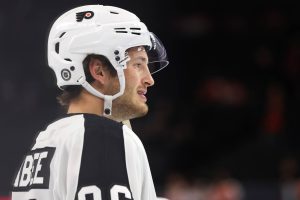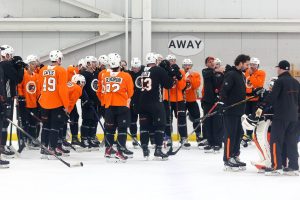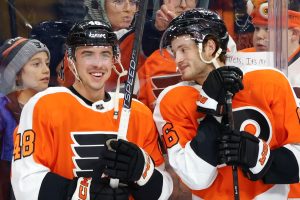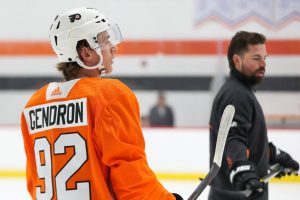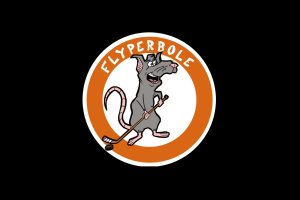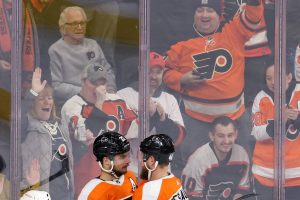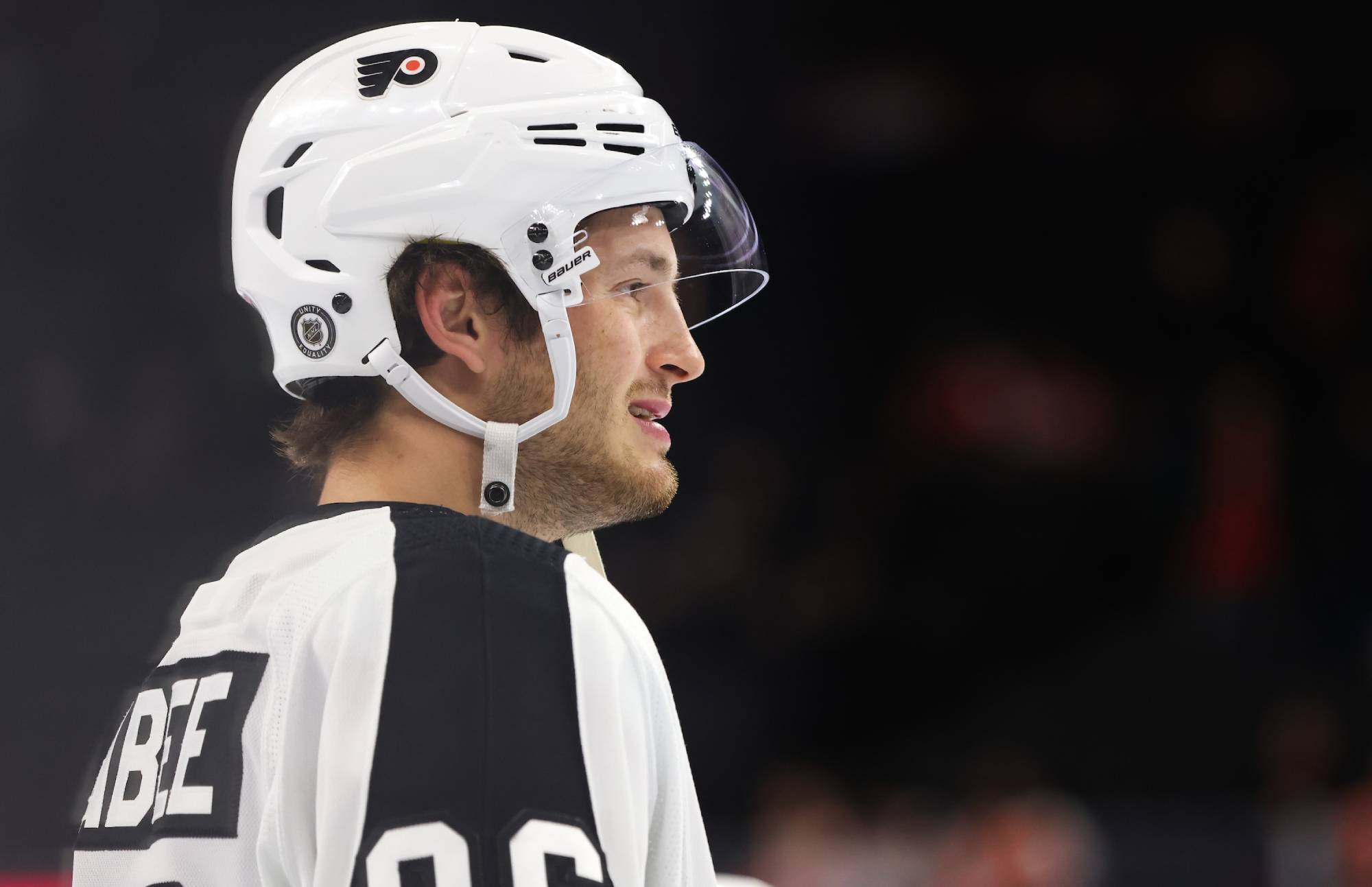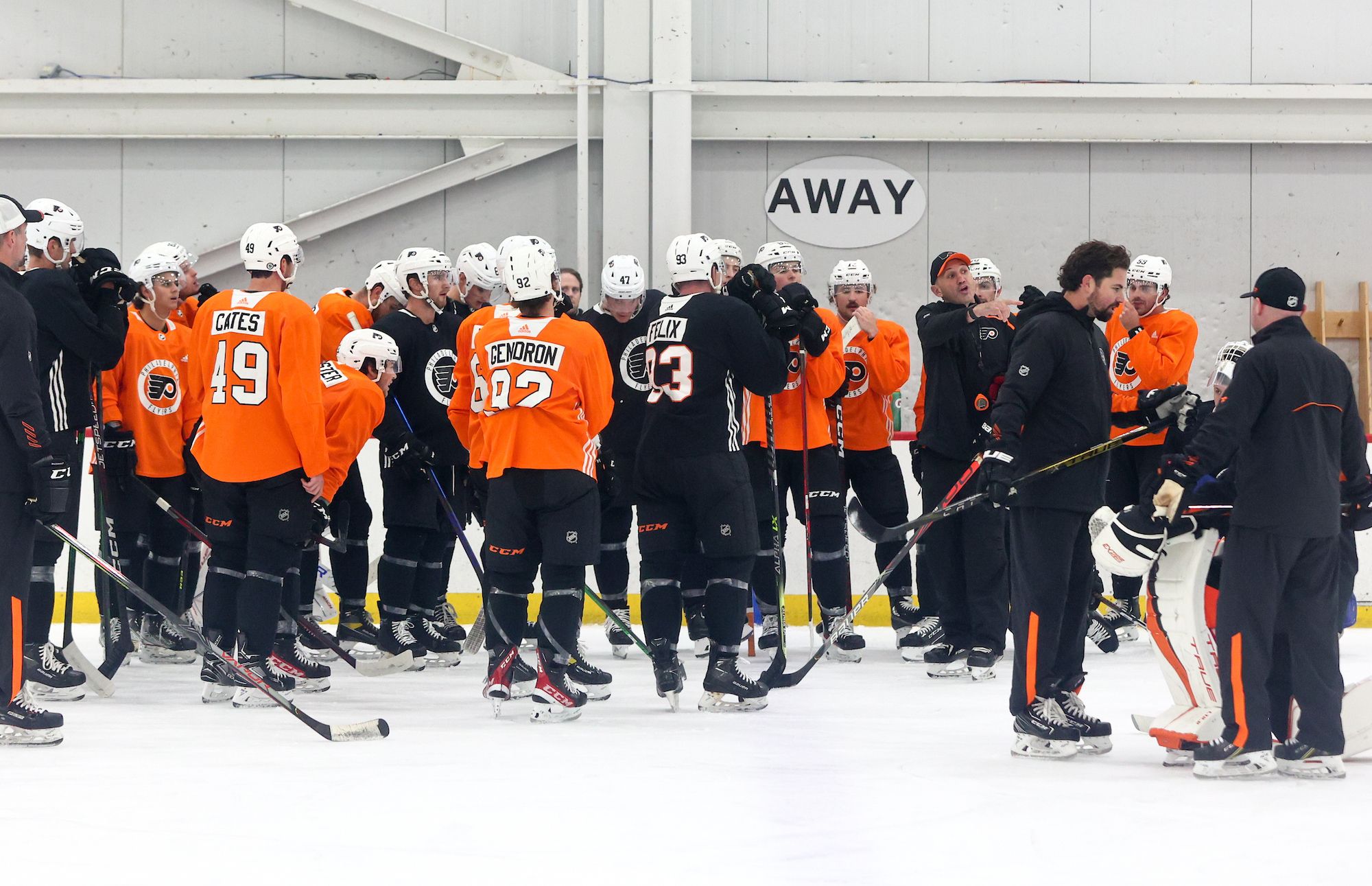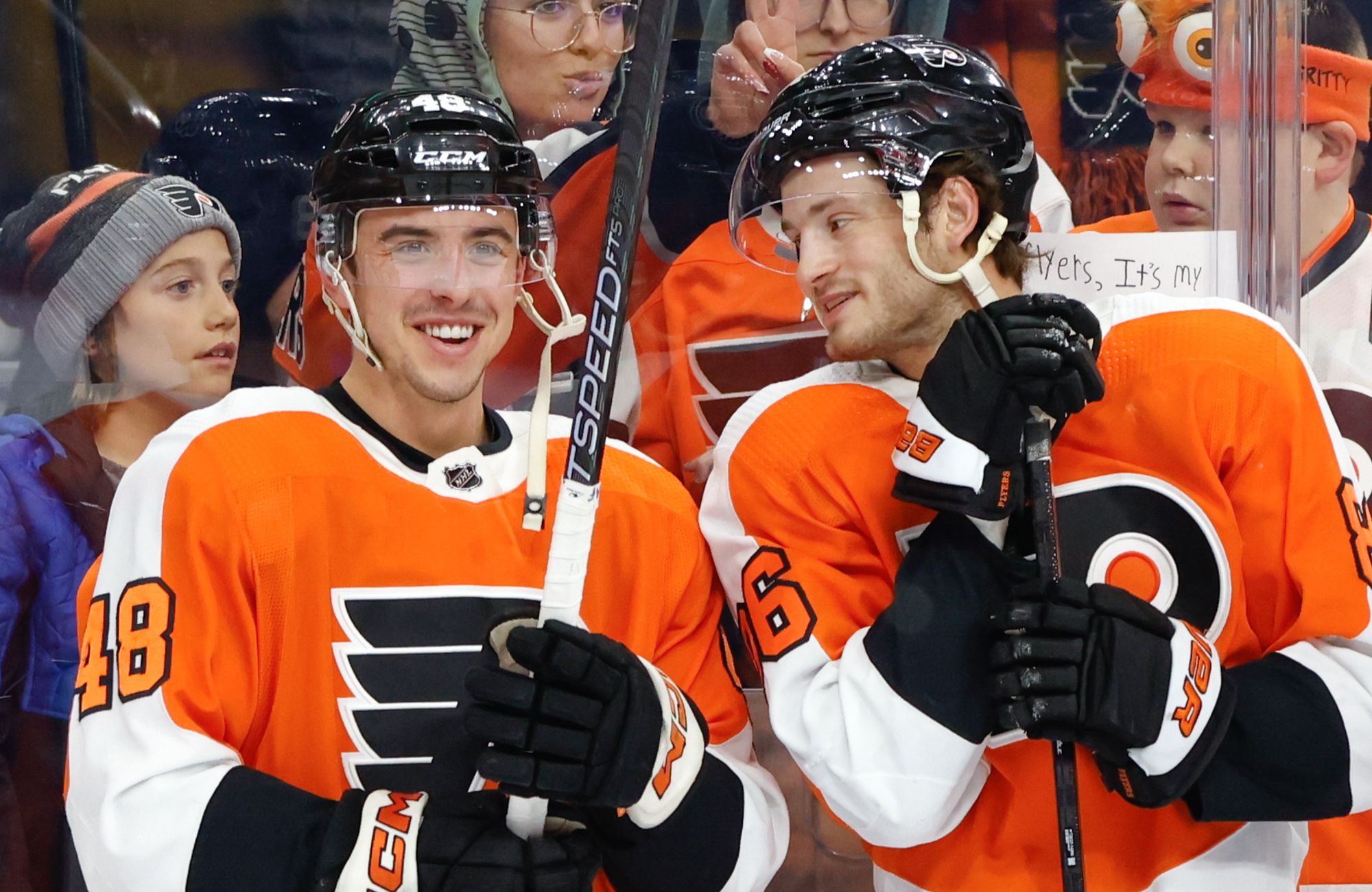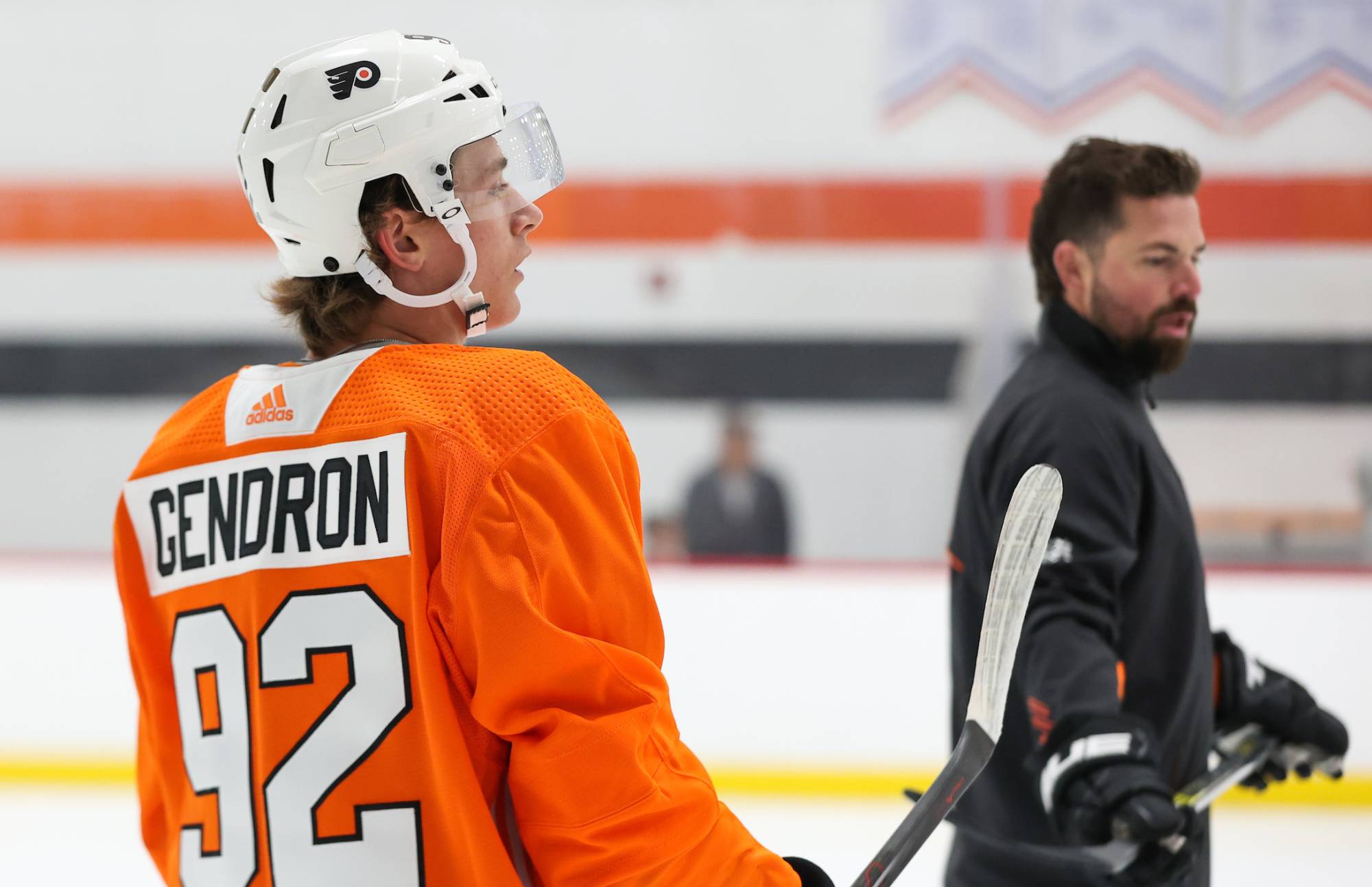We are inching ever more closely to the Stanley Cup Final. Who will be battling for hockey’s ultimate prize and which player will step up their game the most to help propel his team to greatness? 40-years ago in the postseason, no player elevated his play more than Philadelphia Flyers forward Reggie Leach, aka the Riverton Rifle.
After scoring 61 goals (a single season franchise record) in 1975-76, 51 of which were scored at even-strength, Leach tallied 19 more goals in the playoffs as the Flyers tried to secure their third straight championship.
Although Philadelphia lost to Montreal in four games in the Final, Leach earned the Conn Smythe Trophy for his prolific goal scoring campaign. To this day, he is still the only skater (non-goalie) in NHL history to win the MVP as a member of the losing team.
I recently had the chance to talk to Reggie Leach about his historic season, his current work, and who he thinks will be in the conversation for the Conn Smythe Trophy this postseason. The transcript has been lightly edited for clarity and length.
Mike Commito: You had one heck of 1975-76 regular season and playoffs, including a 5-goal game in the postseason. Can you recall some of the goals from that game?
Reggie Leach: That year I was on top of my game and probably the best season I ever had. Everything that year that I did went in the net. It continued into the playoffs and I recall going to the games with my wife at the time and say, “ah, I’ll probably get one or two tonight.” It’s just the way that I felt and it went like that throughout the playoffs. It was just one of those things, playing that in game, people don’t realize that I got three of those goals on backhands, so it was a matter of just being in the right place at the right time. And poor [Gilles] Gilbert, I had his number that game and I had his number throughout the entire series. Most of the goaltenders that year I had their number. It was just one of those years where you know you’re going to score, you know when you’re going to be in the right spot, it was just one of those amazing things.
May 16th was the 40th anniversary of your Conn Smythe win. You’re still the only skater (non-goalie) to win the award from the losing team. Can you describe the feeling of winning the Conn Smythe despite the fact that the team did not win the Stanley Cup?
At the moment of receiving the Conn Smythe Trophy after you lose out, everything is based on team play, you really don’t celebrate any of that. I think that after you’re out of hockey and you reflect back on a lot of stuff, you say “my god, I won the Conn Smythe trophy and I’m still the only forward from a losing club to win it,” but at the moment you don’t really think of any of that stuff. At the moment, everything is about winning the Stanley Cup and getting so close, trying to repeat for the third time in a row. At the time, everything was based on team play, and even today it’s the same thing. It’s nice to have these awards, but I don’t think it means very much at the moment unless you’ve won the Stanley Cup.
So despite losing out on the Stanley Cup in 1976, you were also selected to be a part of the Canada Cup, what was that like?
Getting selected to play for the Canada Cup, just to go for tryouts, I think they brought in 50 of us for that, so being chosen to play in the tournament itself was a great honour. Here I am, a little Native kid out of Manitoba, getting to play with the best players in Canada and playing against the best players in the world. It’s an amazing thing, it’s another thing you reflect back on, on the team we had in 1976. You look at the players you dressed with and played against and it’s just a great feeling to have beenn amongst them.
You scored 61 goals in the 1975-76 regular season and 19 in the playoffs, I think the question that all Flyers fans have for you is, what did you do with all those Tastykakes and how many of them did you actually eat?
I had so many boxes! They [Tastykakes] came in big boxes, maybe twelve or so in a box. I’m not sure how many I had that year, probably 80 boxes or so, but I would take some of them home and give some of them away to the neighbourhood. But the rest of the stuff was given to the hospitals, everything I donated was to the children’s hospitals. A lot of people don’t realize that when I was in Philadelphia I went to the hospitals a lot to talk to kids, so it was always rewarding. But if I would’ve eaten all those Tastykakes back then, I would have looked like I do now back then.
Could you tell me what it was it like for you to break into the league as an Indigenous hockey player?
I really didn’t know that much about racism as a kid. I grew up in a small Icelandic and Ukrainian community and you’d have the odd fights where some kid would call you a name and you’d call him one back and you fight for thirty seconds, but then you’re friends again. I encountered a little bit of racism in Junior Hockey, but my coach would tell me that “the only reason they’re bugging you Reg is because you’re being noticed for what you’re doing on the ice, don’t let that bother you, just do what you do on the ice and go from there.” And that’s how I dealt with the racism as a youngster when I was in my teens, but going into the National Hockey League and getting drafted and being First Nation, there wasn’t that many First Nations players in the National Hockey League, even today, we still don’t have that many. But there wasn’t that many big names at the time when I came in and I was one of the lucky ones, and I had some great years and it really helped me along, but being who I am and where I came from, I am very proud of my culture and being Ojibwe. And I have learned a lot about my culture since I moved back to Canada and in Ontario, and that’s when I found out who I am and where I came from and what I should be like, so to me it’s a wonderful thing to be who I am and where I came from.
Could you tell me about the work you currently do with First Nations communities and your Shoot to Score hockey school?
We work with about 2,000 kids a year, it’s my sons school, but my job is to get the contacts and get the schools. What I do with the schools, I’m more of the PR guy, I talk to everybody, I love talking to kids and part of our program is where I do a session with all the kids where we talk about life choices and what it takes to become a good hockey players and a good student. So our hockey school is more than a hockey school. We’re one of the bigger schools across Canada now, we do everything on our own, we don’t have a major sponsor and we go into a lot of these northern communities, right across Canada and even in the United States. I’m really proud of the way we run our schools and how we work with our kids, especially the First Nations kids. Working with the First Nations kids, those young kids, all they want to do is be loved, be talked to and listened, so it’s wonderful to see the smiles on their faces when you come to the rink in the morning.
That’s my goal right now, to help these young kids and point them in the right direction. The mistakes I made as a young person and a young adult in the National Hockey League, I am more proud of what I did after I finished hockey. Hockey was just a stepping stone for what the Creator wanted me to do. I learned from my mistakes and I put it all in my book and I have heard from young kids who have read my book and that’s what the book is all about, it’s alright to make a mistake but move on with it and learn from it.
Losing Ed Snider was a huge loss for the hockey world, could you tell me about some of the memories you had of him during your playing days in Philadelphia?
He was actually sort of like one of the players. I think when he bought the club, I was 24 or 25 years old, he might have only been fifteen years older than us, so he’d come in the room all the time, whether you won or lost. He was always so positive all the time and he always helped people. A lot of the people struggled during their years [in Philadelphia], and even after they finished playing he helped a lot of players and a lot of people don’t know about that. Losing him, I just hope the Snider family themselves still remain a part of the club going forward.
As a Conn Smythe winner, who do you see as the early frontrunner to win MVP this year?
Right now there isn’t really a clear cut person, but I’d go with [Victor] Hedman from Tampa Bay. He’s such a great player, right now he is just controlling everything from back there. I’d also have to say [David] Backes from St. Louis, I think he has 6 or 7 goals, but it’s not only the goals, it’s else he does on the ice. He’s a big force out there, so those are the two ones that I see right now that are the frontrunners if they make it to the Cup.
*Editor’s note: Mike talked with Reggie when both Conference Final series were tied 1-1.
***
Reggie Leach’s 19 goals in the 1976 Stanley Cup Playoffs is still an all-time NHL record, one that he shares with Jari Kurri. Joe Sakic sits in second on that list with 18 goals (1996) and in recent memory, Sidney Crosby has come the closest when he tallied 15 in the Penguins 2009 Stanley Cup run. While Kurri scored 19 goals in 18 games in the 1985 playoffs, you could make the case that he carried out his campaign with much less flare. Five of Leach’s goals came in one bunch in the final game against the Boston Bruins in the Conference Finals on May 6. His performance that game tied an NHL record shared by Newsy Lalonde (1919), Maurice Richard (1944), and Darryl Sittler (earlier that same postseason). In addition, Leach still holds the record for the longest consecutive goal-scoring streak in a single postseason, scoring in 10 straight contests.
After his Conn Smythe win, Leach played another six seasons in Philadelphia, racking up 200 more goals and 145 assists, bringing his career total with the Flyers up to 306 and 208 respectively. His 306 goals are good enough for 7th all-time in career goals for Philadelphia. Reggie lives in Aundeck Omni Kaning First Nation on Manitoulin Island with his wife Dawn and runs the Shoot to Score hockey school with his son Jamie. This summer he will be honoured by his home province, when he receives the Order of Manitoba on July 7.
***
Mike Commito is a hockey historian and Research Coordinator at Northern Policy Institute in Sudbury, Ontario. He has a PhD, so after Mark Recchi, that makes him the smartest hockey doctor. You can follow him on Twitter @mikecommito.
